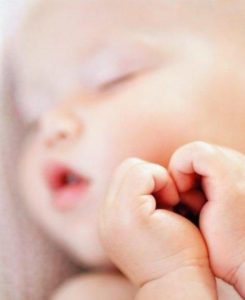Jessie’s Heart
Healing Little Hearts
Our beautiful daughter, Jessica Renee was born with Tetralogy of Fallot (TOF) and was hospitalized multiple times for procedures. At 22 months old her last stay was for an open-heart surgery, which she unfortunately didn’t live through.
To honor Jessie, we have established the Jessie’s Heart Foundation with our goal to provide support to children who are hospitalized for repair of their defects or full replacement of their hearts.
Congenital heart defects (CHD) affect 1 out of 100 newborns, which is over 40,000 births per year in the United States. In addition to the astronomical medical expenses, families face the unexpected expenses that come with many lifestyle changes and emotional/physical stress.
Jessie’s Heart supports these children and their families financially through these times of uncertainty.
Mission
Jessie’s Heart’s mission is to provide support for children with heart defects that reduces emotional, physical and financial stress for the family.
Understanding Congenital Heart Defects in Babies: A Guide for Parents
Congenital heart defects (CHDs) are the most common type of birth defect, affecting approximately 1% of newborns each year. For parents, learning that their baby has a heart condition can be an overwhelming and emotional experience. However, understanding what CHDs are and how they can be managed can make a significant difference in navigating this journey with confidence and hope.
What Are Congenital Heart Defects?
Congenital heart defects are structural abnormalities in the heart that are present at birth. These defects can affect the heart’s walls, valves, or blood vessels, impacting how blood flows through the heart and the rest of the body. CHDs can range from mild conditions that may not require treatment to severe defects that necessitate immediate medical intervention.
Some common types of CHDs include:
- Atrial Septal Defect (ASD): A hole in the wall that separates the upper chambers of the heart.
- Ventricular Septal Defect (VSD): A hole in the wall separating the lower chambers of the heart.
- Tetralogy of Fallot (TOF): A combination of four defects that affect blood flow.
- Hypoplastic Left Heart Syndrome (HLHS): An underdeveloped left side of the heart.
- Coarctation of the Aorta: A narrowing of the aorta, the main artery that carries blood to the body.
Causes and Risk Factors
The exact causes of congenital heart defects are often unknown. However, several factors may increase the risk of a baby being born with a CHD:
- Genetic factors, such as a family history of CHDs or chromosomal abnormalities
- Maternal health conditions, such as diabetes or certain infections during pregnancy.
- Environmental factors, including exposure to harmful substances or medications during pregnancy.
Signs and Symptoms
In some cases, CHDs are diagnosed before birth during routine ultrasounds. However, symptoms may also become apparent after birth or during infancy. Common signs include:
- Bluish tint to the skin, lips, or nails (cyanosis).
- Rapid or labored breathing.
- Poor feeding or difficulty gaining weight.
- Fatigue or lethargy.
- Swelling in the legs, abdomen, or around the eyes.
If you notice any of these symptoms, consult your pediatrician or a pediatric cardiologist immediately.
Diagnosis and Treatment
Diagnosing CHDs typically involves imaging tests like echocardiograms, X-rays, or MRIs. In some cases, genetic testing may also be recommended.
Treatment options depend on the type and severity of the defect. They may include:
- Medications: To manage symptoms like high blood pressure or to prevent blood clots.
- Catheter Procedures: Minimally invasive techniques to repair defects without open-heart surgery.
- Surgery: In severe cases, surgery may be required to correct the defect.
- Heart Transplant: Rarely, if the defect is too severe to repair, a heart transplant may be necessary.
Living with a CHD
Advances in medical technology and treatment mean that many babies with CHDs go on to live full and healthy lives. However, lifelong follow-up care is often necessary to monitor heart health and address potential complications.
Support networks can play a crucial role for families. Organizations like the American Heart Association and local CHD advocacy groups provide valuable resources, emotional support, and connections with other families facing similar challenges.
Hope for the Future
Research into CHDs continues to advance, leading to better diagnostic tools, treatments, and outcomes for affected babies. With early detection and appropriate care, many children with CHDs thrive and lead fulfilling lives.
As a parent, remember that you are not alone. Your medical team, support groups, and community are here to help you navigate this journey with strength and optimism. Together, we can ensure that every child with a congenital heart defect receives the care and support they need to reach their fullest potential.
Integrating a heart and dragonfly for children with congenital heart defects (CHD) is a powerful symbol embodying love, transformation, and resilience.
The heart universally represents love, care, and life. In the context of CHD, it directly signifies the physical heart and the challenges faced by those affected, emphasizing the importance of support and compassion.
Dragonflies undergo metamorphosis, symbolizing change and adaptability. This mirrors the journey of children with CHD who often face numerous medical interventions and personal growth challenges. Dragonflies represent hope, joy, and light.

JC Heinen
Founder and Executive Director of Jessie’s Heart
As Jessie’s mom, JC is passionate about bringing hope to the families of children with heart disease through financial assistance and gifts of the heart. Her family including an amazing husband, five grown children, seven grandchildren, and four great grandchildren are all involved in supporting this amazing mission.
About Us
Our Board of Directors help serve the financial needs and desires of families whose children have heart defects.
Board of Directors
Brandon Collier
Niki Collier
Pat Foley
Kathy Lawless
Key Contributors
Buell Foundation
Guber Family Giving Fund

Donate To Jessie’s Heart
Jessie’s Heart is a Colorado 501(c)(3) non-profit recognized by the IRS.

